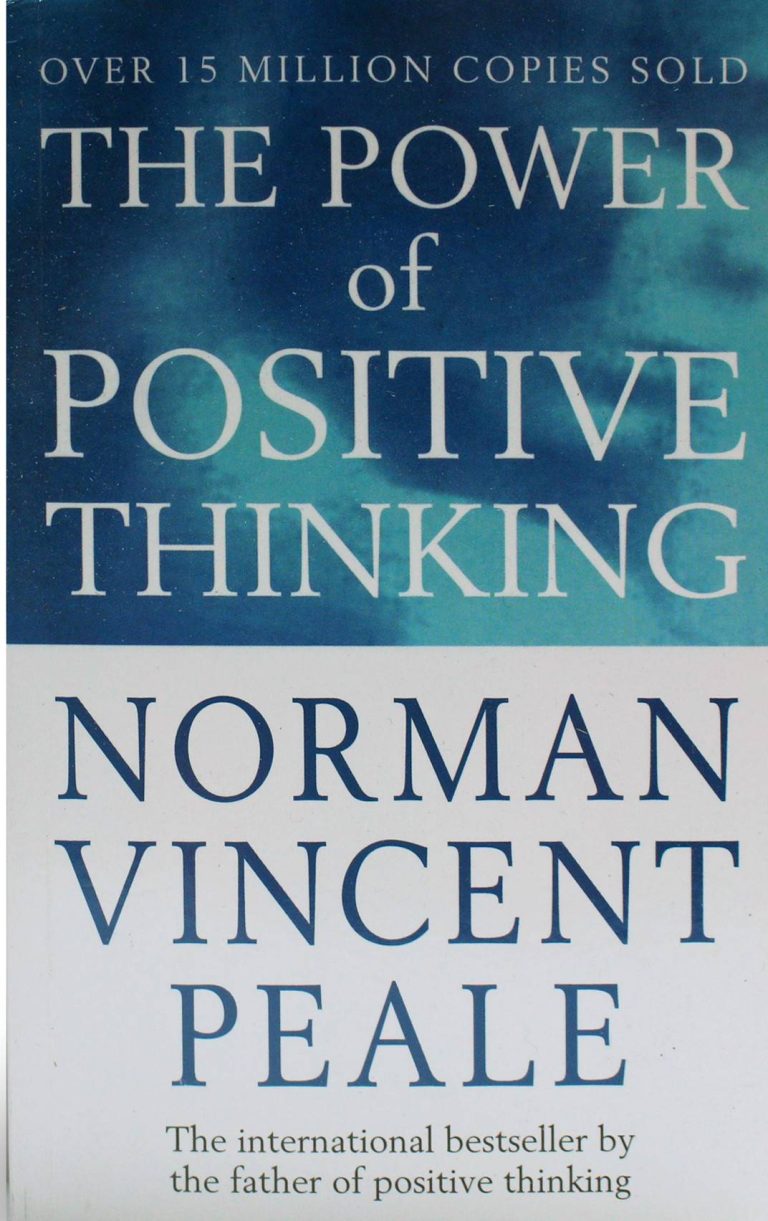Title: The Power of Positive Thinking
Author: Norman Vincent Peale
First published October 1, 1952
128 pages, Hardcover
ISBN: 9781416560616 (ISBN10: 1416560610)
Rating: 4.17
Overview
Norman Vincent Peale’s The Power of Positive Thinking is the ultimate guide to achieving a happy, satisfying, and fulfilling life. This bestseller has helped millions of individuals manifest their dreams and aspirations, and it can help you too.
Dr. Peale’s practical techniques will teach you how to harness the power of faith in action to energize your life and become the master of your destiny. Through this book, you’ll discover how to expect the best from life, believe in yourself, and cultivate the power to reach your goals.
You’ll gain the tools to break the worry habit, improve your relationships, take control of your circumstances, and be kind to yourself. If you’re ready to unleash the power of positivity, then The Power of Positive Thinking is the book for you.
About the Author
Meet Dr. Norman Vincent Peale, a renowned minister and author who is best known for his theory of “positive thinking.” He was born in Bowersville, Ohio, and attended Bellefontaine High School before earning degrees from Ohio Wesleyan University and Boston University School of Theology.
Although he was raised as a Methodist and ordained as a Methodist minister in 1922, Peale switched to the Reformed Church in America in 1932. He then became the pastor of Marble Collegiate Church in Manhattan, where he served for an impressive 52 years.
Under his leadership, the church’s membership skyrocketed from 600 to over 5000, and he became one of New York City’s most celebrated preachers.
Peale’s most famous book, The Power of Positive Thinking, has inspired countless readers to adopt a more optimistic outlook on life. His teachings continue to influence people around the world, and his legacy as a pioneer of positive psychology lives on.
Editoral Review
The Power of Positive Thinking by Norman Vincent Peale is a timeless classic that has been inspiring readers for nearly seven decades. First published in 1952, it is now considered one of the most influential self-help books of all time.
Norman Vincent Peale was an American minister and author, who was known for his unconventional approach to religious preaching, which emphasized the power of positive thinking and personal transformation. The book’s genre is self-help, focused on motivating readers to change their negative mindset and adopt a positive outlook on life.
The style is conversational and easy to understand, making it accessible to readers of all ages and backgrounds. The themes that run through the book are spirituality, faith, self-confidence, and the power of the human mind to shape our reality.
The book is divided into 18 chapters, each one covering a different aspect of positive thinking. These include topics such as “Believe in Yourself”, “Overcoming Fear”, and “Developing a Positive Personality”.
Throughout the book, Peale provides practical advice and real-life examples of how positive thinking can transform our lives. Peale’s book is designed to help readers overcome the negative thoughts that hold them back from achieving their dreams.
He believes that by focusing on positive thoughts and invoking the power of prayer, people can transform their lives and discover their true purpose. Peale’s writing style is engaging, and his examples are relatable, making it easy to connect with his ideas and understand how they apply to our own lives.
The Power of Positive Thinking has significant historical and cultural significance. It was written during the post-war era of the 1950s, a time of great social and economic upheaval.
The book’s message of hope and personal transformation resonated with readers, who were looking for guidance on how to navigate a complicated and uncertain world. Today, as we face similar challenges, the book remains as relevant as ever.
In terms of critical analysis, The Power of Positive Thinking is undoubtedly a masterpiece of self-help literature. Its strengths lie in the practical advice and real-world examples that Peale provides.
He is a masterful storyteller who knows how to connect with his audience and make them believe in themselves. However, the book’s weakness may be its focus on religious faith, which may not resonate with all readers.
Some may find his reliance on prayer to be too narrow a focus, and it may not work for all people. Comparing this book to other works in its genre, we can see that there are many similarities.
Other self-help authors, such as Dale Carnegie and Tony Robbins, also emphasize the power of positive thinking and personal transformation. However, Peale’s book stands out because of his unique focus on spiritual faith and prayer as a tool for personal growth.
Overall, The Power of Positive Thinking is a must-read for anyone who wants to improve their life, overcome fear, and live a more fulfilling existence. Its focus on practical, actionable advice makes it a valuable resource for anyone in search of personal transformation.
Despite its religious overtones, the book’s lessons and insights are applicable to readers of all backgrounds and beliefs. In conclusion, I would highly recommend this book to anyone looking for guidance on how to overcome negative thoughts and discover their true potential.
It is a powerful reminder that our thoughts have the power to shape our reality and that we have the ability to transform our lives through positive thinking. I give this book a rating of five stars for its ability to inspire, empower, and transform readers.



